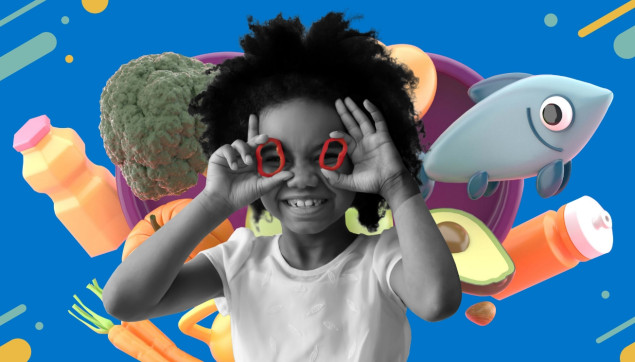Why cooking is an important life skill to teach your child

Published on 20th March, 2023 at 11:58 am
Modern parents – often in dual-career households – are busy people. The thought of encouraging their child to make a mess in the kitchen while teaching them how to cook is probably at the bottom of the to-do list.
However, according to family psychologist Viona Odendaal, and Jonathan Hoffenberg, social worker at The Parent Centre, teaching your child to cook is a critical life skill that prepares them for their future.
Reading time: 4 minutes
In this article you’ll learn:
- Why cooking is an important life skill that every child should learn.
- Why it’s crucial to prioritise your child’s independence.
- Practical ways to teach your child to cook at any age.
Why you should prioritise your child’s independence
By equipping your child with crucial life skills – and the freedom to practise those skills – you’re preparing them for life as an independent adult when they leave the nest.
Cooking is a basic life skill
Cooking is one of the crucial life skills of adulthood and, learning to cook is a great opportunity to let children experiment within the boundaries of a recipe, make mistakes they can learn from, and grow confident in their new skills.
Cooking as a life skill can help them:
- Learn to stretch a budget further
- Understand the need for planning
- Learn how to follow rules
- Have a real skill to contribute to society
- Eat more healthily
- Gain confidence through mastery
When you teach your child how to cook, you also give them the opportunity to practise creativity, critical thinking and collaboration.
How to get your kid in the kitchen
It’s important to tailor kitchen activities according to age – from a developmental and safety perspective. Here are some ideas for different age groups:
Under 3 years: Cultivate curiosity
Get your toddler to help with low-risk tasks like washing vegetables, stacking food containers, sprinkling flour or stirring ingredients at room temperature.
As they edge towards 4 years, start to give them choice. “Ask them to help you pack their lunchbox by choosing what goes in it. Only give them two options to choose from, though. This gives them a sense of independence, but also boundaries to help them feel safe,” explains Odendaal.
As part of learning in the kitchen, let your kids get into the habit of avoiding waste with these hacks for ingredients so they can last longer.
Age four 4–7 years: Ingredient preparation
Ask them to chop mushrooms with a sturdy plastic knife, sieve flour over a bowl, spread butter onto bread, or cut shapes from dough.
To build their confidence, encourage and praise – even if the outcome isn’t perfect. “Reward effort and don’t point out the fact that it isn’t done properly. For example, say ‘I saw that this was tricky for you, and you didn’t give up. I’m so proud of you’,” says Odendaal.
When your toddler insists on using the ‘big knife’, set gentle limits, but don’t discourage their drive to do it in future. For example: “One day, when you are 9 years old, you’ll be old enough to use the knife – won’t that be great?”
Got fussy eaters in the house? Here’s our guide to keeping them both happy and healthy.
Age 7–13: Meal planning
This is the age when pre-teens are more aware of their place in society. Capitalise on that, and get them involved in making choices for the family, like deciding what to have for dinner on Friday night and the preparation that it requires.
Hoffenberg adds: “Cooking should be linked to shopping and budgets, and becomes a vital lesson for living within your means, the need for planning, and making the best with whatever resources you have.”
Get them involved in more sophisticated cooking help, like peeling carrots, making a salad, whisking eggs or even following simple recipes, like muffins.
If you’re struggling to find time to accommodate the learning, Hoffenberg has a great tip: “During the week, children can help set up and clear the table. Weekends are a great time to try a new recipe.”
Age 14+: Give them the reins
“Teens are developmentally at the stage where they break away from the home and journey towards adulthood,” says Hoffenberg. So give them more responsibility.
Suggest that they be responsible for preparing dinner twice a week, including choosing the recipe, making sure they have all the ingredients and preparing the dish.
If you’ve invested in their cooking education all the way to this point, this is your opportunity to kick back, relax and reap the rewards!
As a Reality Club or Reality Access for Sanlam Group Risk member, you get free grocery coupons monthly to use at Shoprite and Checkers stores. It’s an easy way to keep cooking costs low, and a chance get your child involved in finding deals for the kitchen. Use your benefit now.
Want to learn more?
We send out regular emails packed with useful advice, ideas and tips on everything from saving and investing to budgeting and tax. If you're a Sanlam Reality member and not receiving these emails, update your contact details now.
Update Now







